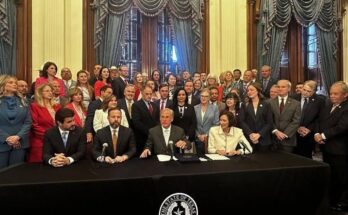Ilhan Omar Just Tried to HUMILIATES John Kennedy, You Won’t Believe What He EXPOSED!
Capitol Drama: Ilhan Omar’s Ethics Showdown with John Kennedy Ends in Historic Reckoning
Washington, D.C. — The ornate hearing room on Capitol Hill was packed to capacity, the air charged with anticipation and the faint hum of television cameras. Journalists, staffers, and members of the public filled the gallery, their eyes fixed on the joint Senate-House Committee on Congressional Ethics and Accountability.
From the moment Representative Omar entered, flanked by attorneys and aides, it was clear she was prepared for battle. Her reputation for bold rhetoric and fierce advocacy preceded her, and her arrival was met with a flurry of whispers about what she had planned.
The committee chair called the session to order, but before the agenda could be addressed, Omar seized the floor. With crisp authority, she launched into a blistering critique of Kennedy, accusing him of hypocrisy, elitism, and indifference to the struggles of immigrants and working families.

The Confrontation: Accusation and Counterattack
Kennedy listened in silence, his expression unreadable as Omar pressed her attack. She referenced his voting record, his ties to industry, and his folksy persona, calling it a mask for indifference. The gallery buzzed as reporters scribbled furiously, sensing the magnitude of the moment.
“You were informed, Representative, but the checks were coming in, so it got overlooked. Or maybe it was just good business,” Kennedy stated.
Omar denied personal involvement, but Kennedy pressed on, reading aloud from the email and showing evidence of her direct association with the company’s CEO. The gallery gasped, and the committee chair struggled to maintain order as the tension mounted.
Kennedy’s second folder focused on Omar’s advocacy work. He read from internal memos suggesting that her office prioritized media exposure over substantive policy follow-through.
The third folder turned international, revealing financial records and wire transfers suggesting that Omar’s campaign had received funds from entities tied to foreign nationals—a violation of federal law.
Kennedy read excerpts from emails between Omar’s staff and overseas NGOs, discussing strategies to route contributions through shell organizations. He played a brief audio clip of Omar herself saying, “As long as the funds come clean on paper, we’re good. Global solidarity knows no borders.”
Whistleblowers Step Forward: Staff Testimony and Retaliation
The fourth folder contained affidavits from former staffers, including Maya Hassan, Omar’s former scheduler. Hassan appeared in person, testifying that she and others had been instructed to inflate Omar’s legislative achievements and falsify press statements.
Hassan described instances where staffers faced threats, leaks, and even IRS audits after raising concerns about donor ties. “If you can’t handle making us look good, maybe this office isn’t for you,” Hassan quoted Omar from a recorded conversation.
Kennedy thanked Hassan for her bravery, and the gallery applauded as she stepped down.
Kennedy’s fifth and sixth folders revealed complaints from donors and constituents who faced retaliation after criticizing Omar, including targeted inspections and audits. He also exposed communications between Omar’s office and media outlets, showing attempts to bury negative stories in exchange for exclusive tips on opponents.
The Climax: Arrest and Sentencing
Before the session could adjourn, FBI Director Christopher Wray entered with agents and formally arrested Omar on charges including campaign finance violations, obstruction of justice, witness tampering, and conspiracy to defraud the United States.
Months later, Omar stood before a federal judge in Washington, D.C., her tailored suits replaced by a plain gray outfit. She pleaded guilty to 12 federal charges and was sentenced to 15 years in prison, forfeiture of $2 million in assets, and restitution to her victims. The judge condemned her betrayal of public trust, declaring, “The damage to democracy is profound.”
The fallout from the hearing was swift and far-reaching. Congress passed the Ethics Accountability Act, mandating transparency in campaign finances, independent audits, and stronger protections for whistleblowers.
Senator Kennedy returned to Louisiana, holding town halls and sharing the lessons of the hearing. “What happened in that room wasn’t about me winning or anyone losing. It was about the system working as it should,” Kennedy told constituents. He emphasized the need for vigilance, transparency, and personal integrity in public life.
The scandal’s ripple effects extended nationwide. Media outlets revised ethics codes, political science curricula incorporated the case, and voter turnout increased as citizens engaged more deeply in democracy.
As Kennedy often remarked, “In America, the truth doesn’t just set you free. It keeps us all honest.” The downfall of Ilhan Omar became a stark warning in the hallowed halls of power—a reminder that ethics must always triumph over expediency, and that the courage to speak out can change the course of history.




